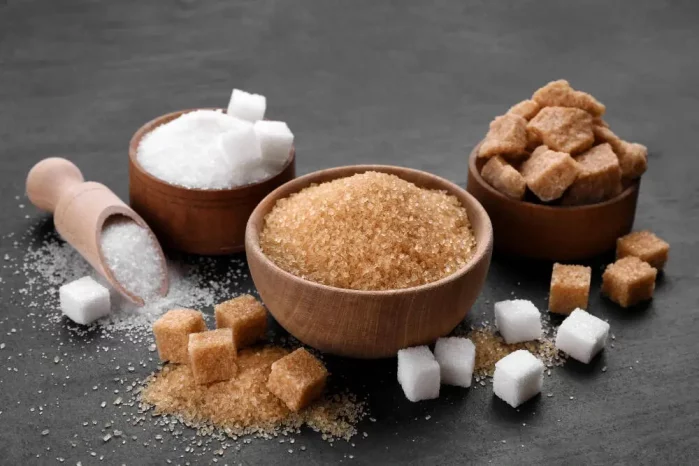Living with diabetes requires careful attention to diet and nutrition to manage blood sugar levels effectively and reduce the risk of complications. Certain foods can have a significant impact on blood glucose levels, making it essential for individuals with diabetes to be mindful of their dietary choices. In this comprehensive guide, we’ll explore the foods that should be avoided by individuals with diabetes, along with practical tips and healthier alternatives to support optimal diabetes management.
High-Carbohydrate Foods: Managing Blood Sugar Spikes
Carbohydrates are a primary source of energy for the body, but foods high in carbohydrates can cause rapid increases in blood sugar levels, posing challenges for individuals with diabetes. It’s crucial to limit the intake of high-carbohydrate foods to maintain stable blood glucose levels. Examples of high-carbohydrate foods to avoid include:
White Bread: White bread is highly processed and has a high glycemic index, meaning it can cause a quick spike in blood sugar levels after consumption. Opt for whole grain bread instead, which contains more fiber and nutrients and has a gentler impact on blood sugar.
Pasta: Most types of pasta are made from refined flour, which is rapidly digested and can lead to spikes in blood sugar levels. Choose whole grain pasta or alternative options such as spiralized vegetables like zucchini or spaghetti squash.
Sugary Snacks: Snack foods like cookies, pastries, cakes, and candy are loaded with added sugars, which can cause dramatic fluctuations in blood sugar levels. These empty-calorie treats offer little nutritional value and should be limited or avoided altogether.
Sugary Foods and Drinks: Minimizing Added Sugars
Added sugars are ubiquitous in many processed and packaged foods, as well as sugary beverages, and can wreak havoc on blood sugar control. Cutting back on sugary foods and drinks is essential for managing diabetes and reducing the risk of complications. Examples of sugary foods and drinks to avoid include:
Soda: Regular soda is packed with added sugars and provides empty calories without any nutritional benefits. Opt for water, sparkling water, or unsweetened tea or coffee instead.
Cakes and Pastries: Baked goods like cakes, pastries, and sweet treats are often high in added sugars and unhealthy fats. Choose healthier alternatives like fruit for dessert or homemade baked goods made with natural sweeteners like honey or maple syrup in moderation.
Candy: Candy is pure sugar and provides a quick energy boost followed by a crash in blood sugar levels. Instead of reaching for candy, satisfy your sweet tooth with fresh fruit or a small piece of dark chocolate, which contains antioxidants and may have some health benefits when consumed in moderation.
Saturated and Trans Fats: Protecting Heart Health
Foods high in saturated and trans fats can contribute to heart disease, a common complication of diabetes. It’s important to limit the intake of these unhealthy fats to reduce the risk of cardiovascular issues. Examples of foods high in saturated and trans fats to avoid include:
Butter: Butter is high in saturated fat, which can raise cholesterol levels and increase the risk of heart disease. Choose healthier fats like olive oil, avocado, or nut butter as alternatives.
Beef: Certain cuts of beef, especially those that are heavily marbled or processed, can be high in saturated fat. Opt for lean cuts of meat like skinless poultry, fish, or plant-based protein sources like tofu or legumes.
Processed Snacks: Processed snacks like potato chips, fried foods, and packaged baked goods often contain trans fats, which are particularly harmful to heart health. Look for snacks made with healthier oils and ingredients, or choose whole foods like nuts, seeds, or fresh fruit for snacks instead.
Portion Sizes: Controlling Blood Sugar
Portion control plays a crucial role in managing diabetes and preventing blood sugar spikes. Consuming large portions of high-carbohydrate or high-calorie foods can lead to elevated blood glucose levels. Here are some tips for controlling portion sizes:
Use smaller plates and bowls to help control portion sizes visually.
Measure portions using measuring cups, spoons, or a food scale to ensure accuracy.
Practice mindful eating by paying attention to hunger and fullness cues and stopping eating when satisfied, rather than eating until stuffed.
Healthy Alternatives: Making Better Choices
Making healthier food choices doesn’t mean sacrificing taste or satisfaction. There are plenty of delicious alternatives to high-carb or sugary foods that can support diabetes management. Examples of healthy alternatives include:
Whole Grains: Choose whole grains like brown rice, quinoa, barley, and oats instead of refined grains like white rice or white bread. Whole grains are rich in fiber, vitamins, and minerals, and have a lower impact on blood sugar levels.
Fresh Fruit: Opt for fresh fruit instead of dried fruit with added sugars. Fresh fruit provides natural sweetness along with vitamins, minerals, and fiber, making it a nutritious choice for satisfying sweet cravings.
Healthy Fats: Incorporate sources of healthy fats like avocado, nuts, seeds, and olive oil into your diet. These fats are heart-healthy and can help improve blood sugar control when consumed in moderation.
Reading Food Labels: Making Informed Choices
Learning how to read food labels can help you identify hidden sugars, fats, and carbohydrates in packaged foods. Pay attention to the ingredient list and nutrition facts panel, looking for terms like “sugar,” “high-fructose corn syrup,” “partially hydrogenated oils,” and “sodium” to make informed decisions about food choices.
Meal Planning Tips: Creating Balanced Meals
Planning balanced meals that include a variety of nutrients while avoiding high-risk foods is key to managing diabetes effectively. Here are some tips for meal planning:
Include a combination of lean protein, complex carbohydrates, healthy fats, and fiber-rich foods in each meal.
Aim for a balanced plate with half of your plate filled with non-starchy vegetables, one-quarter with lean protein, and one-quarter with whole grains or starchy vegetables.
Experiment with different cooking methods like grilling, baking, steaming, or sautéing to add flavor without adding unhealthy fats or excessive calories.
Consultation with Healthcare Providers: Seeking Personalized Advice
Every individual with diabetes has unique dietary needs and health considerations. Consulting with healthcare providers or registered dietitians can provide personalized guidance and support tailored to your specific health needs and diabetes management goals. They can offer valuable insights, recommend appropriate dietary modifications, and help you develop a sustainable approach to nutrition that supports your overall health and well-being.
Conclusion
In conclusion, avoiding high-carbohydrate foods, sugary foods and drinks, saturated and trans fats, and practicing portion control are essential strategies for managing diabetes and promoting overall health. By making healthier food choices, reading food labels, planning balanced meals, and seeking guidance from healthcare providers, individuals with diabetes can take proactive steps towards optimal diabetes management and improved quality of life.
Related Topics


























